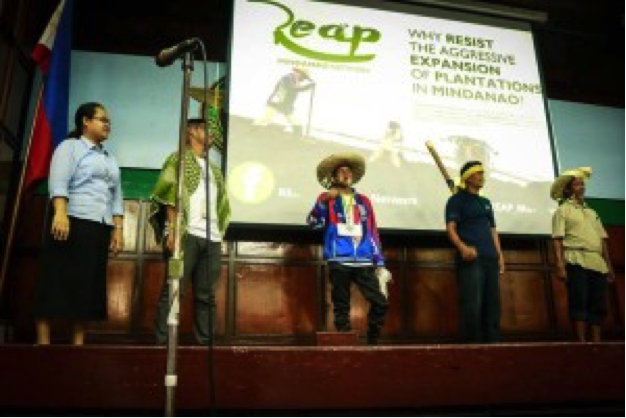No Real Development in Large-Scale Agricultural Plantations – CTUHR

Wages for plantation workers in Mindanao vary across region between P235 to P307 a day. Casual and contract workers in oil palm and banana plantations get as low as P120 to P150 for eight to twelve hours of work according to group’s previous researches.
“Employment generation is also not sufficient and women in these plantations are often left without livelihood. Worse, most of the jobs in plantations are precarious in nature as multinational agri-business companies prefer to hire contractual employee while small farm growers who sell their produce to big industry players can only hire seasonal workers at cheaper rates because they already at the bottom of the supply chain and are thus paid very low for their produce,” Arago added.
Another concrete manifestation of underdevelopment in communities in plantations is the presence and high incidence of child labor. Based on the CTUHR’s survey published last October 2012, at least one of every four worker in oil palm plantations is aged below 18 years old. A study by the Ecumenical Institute for Labor Education and Research (EILER) this year also revealed that child laborers continue to exist in banana plantations in Davao del Norte and sugarcane plantations in Bukidnon.
Based on gathered information from industry groups and government pronouncements, over 500,000 hectares more of land in Mindanao are target for plantation expansion.
“It is clear that the agri-plantations benefit only businesses and multinational companies. The persistence and further expansion of plantations in Mindanao will definitely spell more misery than improvement of already marginalized communities,” Arago noted.
CTUHR also said that growing cases of extra-judicial killings, human rights violations and intensified militarization of communities in Mindanao is strongly linked to the plunder of the island’s resources through large-scale plantations and mining. Last Sept 1, a massacre in Lianga Surigao del Sur highlighted the violent attacks on lumad communities who are defending their ancestral domain and way life from the intrusion of multinational companies. It is estimated that about 40,000 lumads have become refugees because of heightened militarization in Mindanao.
“We stand with the people of Mindanao in demanding to stop the expansion of corporate agricultural plantations in Mindanao. We condemn the militarization and war for plunder in Mindanao and we reiterate our call for justice to all victims of human rights violations committed against the lumad and Mindanao people,” Arago said.###
